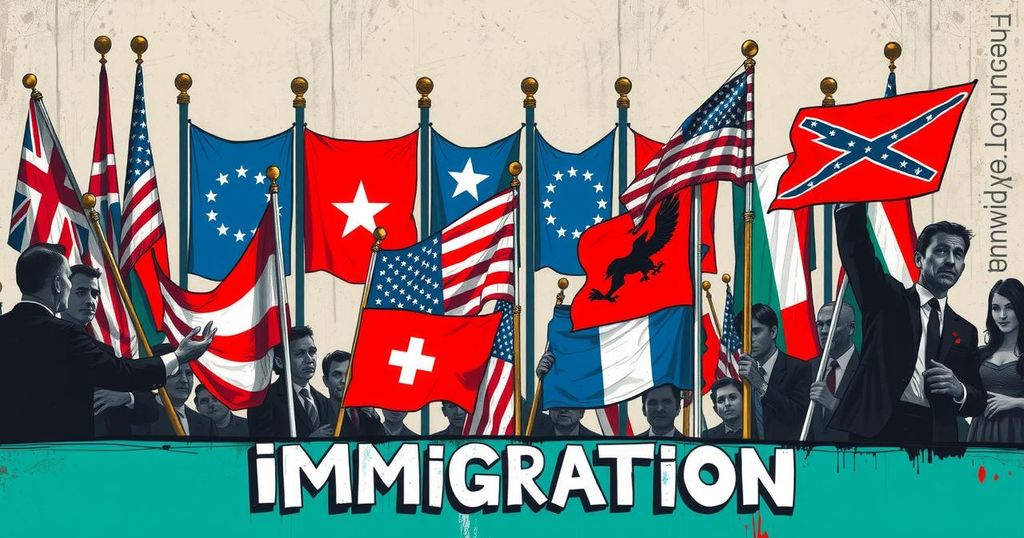Kilmar Abrego Garcia Case: A Crucial Flashpoint in Immigration Debate

The Kilmar Abrego Garcia case has intensified the immigration debate, with Democrats advocating for due process and highlighting government overreach, while Republicans focus on public safety concerns related to immigrants. Prominent Democratic figures have rallied support, framing Garcia’s deportation as a violation of individual rights. Polls show support for Trump’s hardline immigration stance, especially regarding criminals, but the case raises deeper questions about constitutional rights and the balance of power. The outcome may shape future immigration policies.
The case of Kilmar Abrego Garcia, a Salvadoran man erroneously deported by the Trump administration, has intensified the immigration debate. Democrats view this case as a crucial matter of American principles, emphasizing due process and government accountability. Conversely, Republicans are framing it around national safety and the perceived threat from immigrants, particularly those with criminal backgrounds.
Democrats have rallied to defend Abrego Garcia, portraying his unjust deportation as a challenge to individual rights. As they amplify their stance, the Trump administration counters by leveraging claims that Garcia is a gang member, thus attempting to sway public opinion against Democratic support for him. The administration’s rhetoric asserts a narrative of necessary vigilance against perceived criminal threats linked to immigration.
Recently, several prominent Democrats, including Senator Chris Van Hollen and former Secretary of State Hillary Clinton, have spotlighted Abrego Garcia’s case. They argue it exemplifies issues of government overreach and civil rights violations. While party unity on immigration had been inconsistent, the urgency of Garcia’s situation has prompted Democrats to become increasingly coordinated in their responses against the Trump administration’s policies.
Despite negative perceptions of Trump’s immigration policies within parts of the electorate, polls indicate he still retains significant approval for his hardline stance, especially regarding deportations of those with violent criminal histories. However, public consensus is less pronounced when considering the deportation of individuals who have not committed violent crimes.
The Trump administration has admitted that Garcia’s deportation was due to an administrative error, but they maintain that he poses a threat as a suspected gang member. Attorney General Pam Bondi emphasized that he would not be allowed to return to the United States. Trump defends this strong stance by insisting he is fulfilling his electoral mandate, although studies indicate immigrants, in general, are less likely to commit crimes than their American counterparts.
This case has raised fundamental questions about due process and the balance of power between state and federal authorities. A judicial panel criticized the administration’s actions, highlighting concerns over the lack of due process in Garcia’s case. Democratic representatives emphasize that the situation extends beyond immigration, potentially evolving into a constitutional crisis over separation of powers.
Ultimately, Abrego Garcia’s case has become emblematic of the ongoing tensions between immigration policy, individual rights, and the broader implications of governmental authority. Lawmakers recognize that this situation may significantly influence the future of immigration discourse and political alignments in the United States.
The Kilmar Abrego Garcia case illustrates the tangled dynamics of immigration policy, highlighting the contrasting perspectives of Democrats and Republicans. As Democrats unite to defend individual rights and due process, Republicans emphasize national security concerns linked to immigration. The ongoing debate not only reflects differing values but also poses significant questions about constitutional rights and government authority. The outcome of this case may have lasting implications for the immigration discourse in America.
Original Source: apnews.com







